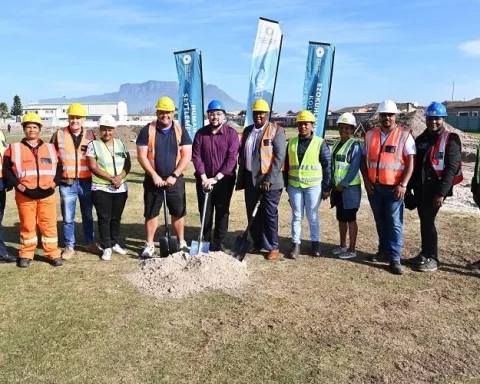Minister Stella Ndabeni-Abrahams visited the Eastern Cape to support small businesses and informal traders by tackling issues concerning sustainable livelihoods, unemployment, and inequality. She distributed essential business equipment to various small businesses and launched the Crudastar Incubator to provide a conducive environment for the expansion and progress of small enterprises, with a focus on rural and township-based start-ups owned by women, youth, and persons with disabilities. The ministry’s programs, such as IMEDP and the Pitch for Funding competition, aim to empower small businesses and promote sustainable livelihoods.
What is Minister Stella Ndabeni-Abrahams’ initiative for small businesses and informal traders in Eastern Cape?
Minister Stella Ndabeni-Abrahams visited the Eastern Cape to support small businesses and informal traders by tackling issues concerning sustainable livelihoods, unemployment, and inequality. She distributed essential business equipment to various small businesses and launched the Crudastar Incubator to provide a conducive environment for the expansion and progress of small enterprises, with a focus on rural and township-based start-ups owned by women, youth, and persons with disabilities. The ministry’s programs, such as IMEDP and the Pitch for Funding competition, aim to empower small businesses and promote sustainable livelihoods.
Minister Ndabeni-Abrahams’ Eastern Cape Visit
On November 2nd and 3rd, Ms. Stella Ndabeni-Abrahams, Minister of Small Business Development, visited the Eastern Cape as part of her continuous nationwide effort to support small businesses and informal traders. The purpose of her visit was to tackle issues concerning sustainable livelihoods, unemployment, and inequality while promoting the expansion and progress of small enterprises.
Throughout her trip, Minister Ndabeni-Abrahams distributed essential business equipment to various small businesses in the Makana and Winnie Madikizela-Mandela local municipalities. This initiative is aligned with the department’s Informal and Micro Enterprises Development Programme (IMEDP), which aims to foster the growth of informal and micro-enterprises to reach their maximum potential.
A significant event during her visit was the unveiling of the Crudastar Incubator in Makana Local Municipality on November 2nd. The incubator is designed to provide a conducive environment for the expansion and progress of small enterprises, with a focus on rural and township-based start-ups owned by women, youth, and persons with disabilities.
Supporting Small Businesses in Eastern Cape
In addition to launching the incubator, Minister Ndabeni-Abrahams attended the finals of the Eastern Cape Pitch for Funding competition. This event offers a platform for Small, Medium, and Micro Enterprises (SMMEs) to present their ideas, innovations, and business cases to the Department of Small Business Development (DSBD) family and its partners. Pitch for Funding enables these small businesses to access both financial and non-financial assistance.
As a component of her Eastern Cape agenda, Minister Ndabeni-Abrahams conducted a walkabout at the Exhibition Center (Civic Centre) before the Annual Stakeholders Forum hosted by the Small Enterprise Development Agency (SEDA). She later presented business equipment to small businesses at the Titi Jonas Multi-Purpose Centre in Port Alfred and attended the Pitching for Funding Competition Finals at the Royal St Andrew’s Hotel.
On November 3rd, Minister Ndabeni-Abrahams delivered a keynote speech at RUCC Farmer’s Day at Glengazi Farm, Ndimakude, Port St. John’s. The event aimed to celebrate the accomplishments of local farmers and their contributions to the community. She also distributed business equipment to small businesses at Winnie Madikizela Mandela Municipality, underscoring the government’s dedication to assisting small businesses and promoting economic growth.
Minister Ndabeni-Abrahams’ Commitment to Small Businesses
During her time in the Eastern Cape, Minister Ndabeni-Abrahams showcased her unwavering support for small businesses and informal traders, vital players in stimulating the economy and enhancing the lives of countless people. By offering resources, advice, and financial backing, the minister and her department are dedicated to creating a brighter future for these enterprises and their communities.
The Eastern Cape visit is just one of many measures implemented by the Ministry of Small Business Development to address the challenges encountered by small businesses and informal traders throughout South Africa. With the inception of programs such as IMEDP, Crudastar Incubator, and the Pitch for Funding competition, the ministry is making significant progress in empowering small enterprises and promoting sustainable livelihoods.
The endeavors of Minister Ndabeni-Abrahams and her department not only benefit small businesses and informal traders but also improve the overall economic landscape of South Africa. By supporting the growth of these enterprises, the government creates a ripple effect that extends beyond the immediate beneficiaries, encouraging job creation, decreasing unemployment, and fostering social and economic development in the country.
In summary, Minister Ndabeni-Abrahams’ trip to the Eastern Cape exemplifies the government’s dedication to uplifting small businesses and informal traders in South Africa. Through a variety of initiatives and programs, the Ministry of Small Business Development is paving the way for a prosperous and inclusive future for all South Africans.
1. What was the purpose of Minister Stella Ndabeni-Abrahams’ visit to the Eastern Cape?
Minister Stella Ndabeni-Abrahams’ visited the Eastern Cape to support small businesses and informal traders by tackling issues concerning sustainable livelihoods, unemployment, and inequality while promoting the expansion and progress of small enterprises.
2. What did Minister Ndabeni-Abrahams distribute to small businesses during her visit?
Minister Ndabeni-Abrahams distributed essential business equipment to various small businesses in the Makana and Winnie Madikizela-Mandela local municipalities.
3. What is the Crudastar Incubator and who does it focus on?
The Crudastar Incubator is designed to provide a conducive environment for the expansion and progress of small enterprises, with a focus on rural and township-based start-ups owned by women, youth, and persons with disabilities.
4. What is the IMEDP program and what is its goal?
The Informal and Micro Enterprises Development Programme (IMEDP) aims to foster the growth of informal and micro-enterprises to reach their maximum potential.
5. What is the Pitch for Funding competition and who can participate?
The Pitch for Funding competition is a platform for Small, Medium, and Micro Enterprises (SMMEs) to present their ideas, innovations, and business cases to the Department of Small Business Development (DSBD) family and its partners. Pitch for Funding enables these small businesses to access both financial and non-financial assistance.
6. What did Minister Ndabeni-Abrahams do at the Annual Stakeholders Forum hosted by SEDA?
Minister Ndabeni-Abrahams conducted a walkabout at the Exhibition Center (Civic Centre) before the Annual Stakeholders Forum hosted by the Small Enterprise Development Agency (SEDA).
7. What is Minister Ndabeni-Abrahams’ commitment to small businesses?
Minister Ndabeni-Abrahams showcased her unwavering support for small businesses and informal traders, vital players in stimulating the economy and enhancing the lives of countless people. By offering resources, advice, and financial backing, the minister and her department are dedicated to creating a brighter future for these enterprises and their communities.
8. How do the efforts of Minister Ndabeni-Abrahams and her department benefit South Africa’s economy?
By supporting the growth of small businesses and informal traders, the government creates a ripple effect that extends beyond the immediate beneficiaries, encouraging job creation, decreasing unemployment, and fostering social and economic development in the country.








